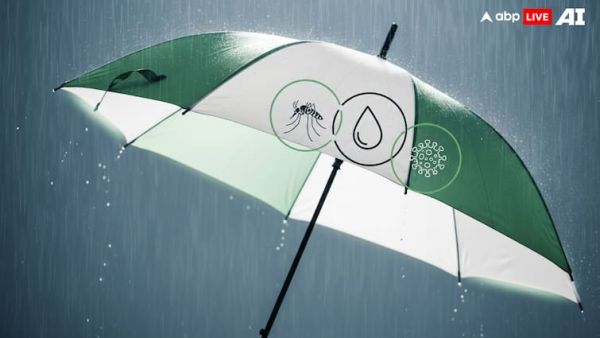
Monsoon, with its refreshing rains, often brings relief from the scorching summer heat. However, it also heralds the arrival of coughs and colds. This season is marked by a sudden dip in temperature, which can weaken the immune system, making individuals more susceptible to viral infections. Concurrently, the rise in humidity creates a favorable environment for viruses to flourish, resulting in an increased incidence of colds, flu, and other viral illnesses.
Health Concerns During Monsoon
- Viral Infections: The combination of lowered immunity and high humidity contributes to a spike in viral infections. Common symptoms include a runny nose, sore throat, cough, and fever.
- Mosquito-Borne Diseases: The monsoon also sees a rise in mosquito-borne diseases like dengue and malaria. Stagnant water from rainfall provides ideal breeding grounds for mosquitoes. These diseases can lead to severe health complications if not addressed promptly.
- Water-Borne Diseases: Another significant concern is the prevalence of water-borne diseases such as cholera, typhoid, and hepatitis A. These diseases are often caused by the consumption of contaminated water, leading to gastrointestinal infections.
Preventive Measures
- Stay Dry And Warm: It's crucial to keep yourself dry and warm during the monsoon. Change out of wet clothes immediately and avoid prolonged exposure to cold environments to prevent catching a cold.
- Protect Against Mosquitoes: Use mosquito repellents, wear long-sleeved clothing, and ensure there is no stagnant water around your living area. Mosquito nets and screens can also be effective.
- Clean Water Tanks: Regularly clean and sanitise underground and overhead water tanks to prevent the spread of water-borne diseases. This helps ensure that the water supply remains uncontaminated.
- Safe Drinking Water: Always drink filtered or safe water. Using water purifiers can also help in removing contaminants, thereby reducing the risk of gastrointestinal infections.
Additional Precautions
- Food Hygiene: Avoid eating street food or food that has been left out in the open, as it may be contaminated. Ensure that fruits and vegetables are washed thoroughly before consumption.
- Hand Hygiene: Wash your hands frequently with soap and water, especially before eating and after using the restroom. This can prevent the spread of germs and infections.
- Maintain Cleanliness: Keep your surroundings clean to prevent the accumulation of water and waste, which can become breeding grounds for mosquitoes and bacteria.
- Adequate Ventilation: Ensure proper ventilation in your home to reduce humidity levels. Using dehumidifiers can also help in maintaining a dry environment.
- Seek Medical Advice: If you experience symptoms of viral infections or any other illness, seek medical advice promptly. Early diagnosis and treatment can prevent complications.
By following these preventive measures and additional precautions, you can mitigate the health risks associated with the monsoon season. Stay vigilant and prioritise your health to enjoy the rainy season safely.
The author, Dr. Sarbajit Ray, is a Consultant Physician, at ILS Hospital, Salt Lake.
-
‘Sometimes you need luck…’: Karun Nair’s coach backs him amid comeback talks

-
Meet actor who married four times, divorced thrice, asked her wife to take off clothes in public, then…, his name is…, daughter is…

-
Is Hansika Motwani facing marriage troubles with husband Sohael Khaturiya? The actress is not staying with her in-laws and living with…

-
Shah Rukh Khan’s most expensive film became India’s biggest flop, earned Rs 9 crore, budget was Rs…, name is…

-
Meet brothers who are buying famous luggage brand from Mukesh Ambani’s relative, once sold their company to Ratan Tata, now planning to…, they are…
